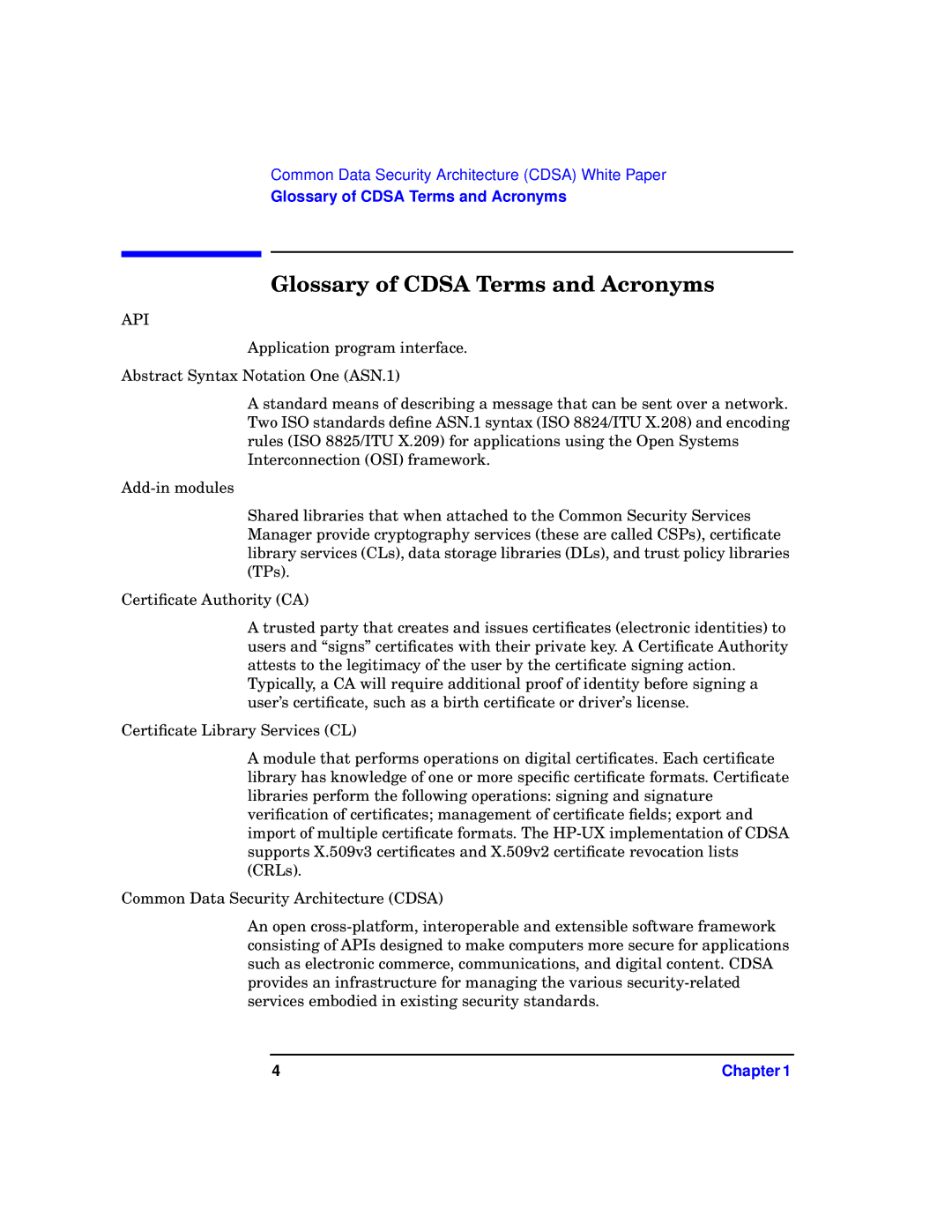
Common Data Security Architecture (CDSA) White Paper
Glossary of CDSA Terms and Acronyms
Glossary of CDSA Terms and Acronyms
API
Application program interface.
Abstract Syntax Notation One (ASN.1)
A standard means of describing a message that can be sent over a network. Two ISO standards define ASN.1 syntax (ISO 8824/ITU X.208) and encoding rules (ISO 8825/ITU X.209) for applications using the Open Systems Interconnection (OSI) framework.
Shared libraries that when attached to the Common Security Services Manager provide cryptography services (these are called CSPs), certificate library services (CLs), data storage libraries (DLs), and trust policy libraries (TPs).
Certificate Authority (CA)
A trusted party that creates and issues certificates (electronic identities) to users and “signs” certificates with their private key. A Certificate Authority attests to the legitimacy of the user by the certificate signing action.
Typically, a CA will require additional proof of identity before signing a user’s certificate, such as a birth certificate or driver’s license.
Certificate Library Services (CL)
A module that performs operations on digital certificates. Each certificate library has knowledge of one or more specific certificate formats. Certificate libraries perform the following operations: signing and signature verification of certificates; management of certificate fields; export and import of multiple certificate formats. The
Common Data Security Architecture (CDSA)
An open
4 | Chapter 1 |
